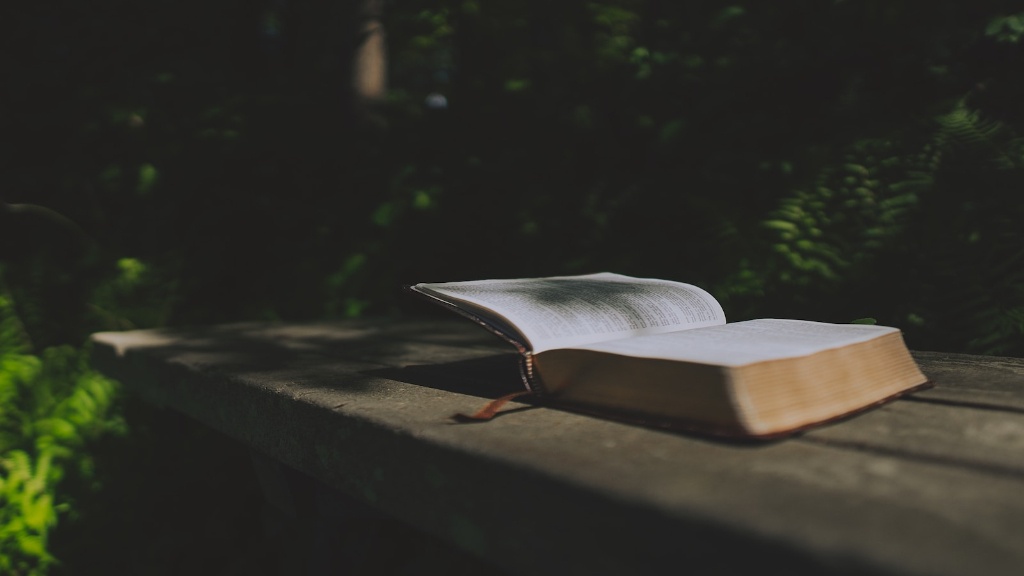Walt Whitman was a poet and essayist, regarded by many as America’s greatest and most influential poet of the 19th century. Throughout his career, Whitman was an innovator and an iconoclast, publishing his writings in his own unique style, often incorporating vernacular language into traditional forms of verse.
He was an early exponent of free verse and helped to revolutionise the American poetry scene. His works contain themes of transcendentalism, democracy, freedom and nature, and they were heavily influenced by the beauty of the natural world and the power of the human spirit. His own experiences with nature, such as his visits to Niagara Falls, were often part of the lyrical content of his verses.
Whitman’s enduring influence is not just on American poetry, but literature as a whole. His work is often cited by other writers and poets as an inspiration, and his unmistakable style has been embraced by writers of all genres. Through his pioneering of a uniquely provocative, passionate and powerful use of language, Whitman changed the way poets could express themselves and opened up new horizons for writing.
In addition to his use of unconventional poetic forms, Whitman was also one of the first poets to bring taboo subjects into the mainstream of literature. He was a passionate advocate for social justice and empathy, and his work was often considered controversial in its day. His verses spoke out against prejudice and against the accepted norms of society, and he was one of the earliest critics of the institution of slavery in America. His willingness to take risks and to break down barriers made him an influential figure and a powerful spokesman for social change.
Aside from introducing the concept of free verse into American literature, Whitman’s works have had a lasting impact on many facets of literature. His works helped shape the development of modern genres such as surrealism, confessionalism, and beat poetry. He was also instrumental in the growth of literature that embraced the language of everyday life, rejecting the traditional conventions of formal language and embracing instead a rich and varied use of words to present ideas and emotions.
The influence of Walt Whitman is still felt in modern literature today. His work is often interpreted and reinterpreted, and his poetic style has been adopted by many contemporary writers. His most enduring legacy is perhaps his unique and powerful use of language, which has inspired generations of writers to create and express themselves freely.
Nature as Inspiration
Nature was an integral part of Whitman’s works, as it became a source of spiritual nourishment and understanding for the poet. He drew deeply from nature to convey his own insights about life and his relationship to it. Whitman often uses nature as a metaphor for the human condition, in order to explore the power of the mind and the heart. He uses the idea of nature’s beauty and abundance to draw the reader in and to evoke an emotional response.
The natural world was an important part of Whitman’s writing, and he often incorporated elements of nature such as birds, flowers, insects, and the different seasons into his verses. Whitman’s exploration of nature speaks deeply to the readers and is often thought of as his greatest contribution to American poetry. He uses nature to talk about the relationship between mankind and the universe, pointing out the deep connections between us and the larger cosmos. He also often reflects on the power of the human spirit within this natural context.
Whitman’s evocative descriptions of the natural world can be found throughout his works. His verses often conjure up vivid images of beauty, power, and mystery, which give them a unique and timeless quality. His use of poetic language to capture his feelings and observations about nature is an important part of his lasting legacy, and has been a major influence on other poets and writers.
Harnessing Language
Whitman was also a master of language and was able to craft verses that were both technically correct and vivid in their expression. He was one of the first poets to use language in a way that was both poetic and powerful, rejecting the technical and formal styles of traditional poetry. His use of language was both innovative and daring, and he often used words in new and creative ways, often breaking with established conventions of language and poetic form.
Whitman explored the power of language to evoke emotions and ideas, and he used words to tap into the depths of human experience. His evocative use of language is particularly powerful, as he often used verse to express the complexity of the human spirit. He was particularly adept at using language to highlight the nuances of the human experience and to articulate difficult and often painful truths.
Whitman was an important figure in the development of a truly American form of poetry, one that was more fluid, expressive and open-ended than the traditional forms of British and European poetry. His groundbreaking use of language helped pave the way for many later poets, and his work helped to shape the course of 20th century American literature.
Introspection and Questioning
Whitman’s influence on modern American poetry is not just in the way he employed language, but also in the way he used his work to question and explore the meaning of life. His works are often introspective and reflect on the nature of mankind and the world we live in. Whitman often wrote about his own struggles and his attempts to make sense of the world around him, and his writings reflected his ongoing search for truth and understanding.
Whitman was interested in exploring the individual and collective aspects of human life, and his work often tackled complex and controversial topics. He was a vocal advocate for social justice and equal rights and his verses spoke out against prejudice, discrimination and oppression. He often questioned the established order and used poetic language to express his opinions on difficult issues.
His works often grappled with the concept of mortality, and he often used metaphors and imagery to highlight the fragility and beauty of life. He explored the human capacity to find meaning and purpose in the face of death, and his poetry often sought to bring the reader closer to an understanding of their own mortality.
Exploration of Social Identity
Whitman’s writings often explored social identity, and he was one of the earliest poets to challenge societal norms and conventions. His work was often considered controversial and subversive in its day, as he was unafraid to speak out against injustice and inequality. He tackled difficult topics such as gender roles, race relations, and social class, and he often used poetic language to express his own opinions on these challenging issues.
Whitman was a staunch advocate for freedom and human rights and his poems often celebrated the human spirit and urged readers to embrace a sense of individual liberty. Through his poetry, Whitman sought to challenge the status quo and to encourage people to examine their own preconceptions about identity and freedom. Whitman’s work has been instrumental in helping to shape modern American culture, as his writings have often laid the foundation for wider debates about social justice and human rights.
Whitman was an enormously influential figure in the history of American poetry, and his pioneering use of language and poetic form has left an enduring mark on literature. His willingness to explore taboo subjects and to challenge traditional conventions has made him an iconic figure in American culture, and his work has enriched and inspired generations of writers and readers.
Support for Social Movements
Whitamn was an impassioned supporter of social movements and his work often sought to bring attention to socio-political issues. In particular, Whitman was an outspoken critic of the institution of slavery, and his poems often spoke out against the oppressive and dehumanizing effects of the system. Whitman was fiercely determined to stand up for what he believed was right, and his work often sought to build bridges between different races and classes in order to promote understanding and justice.
Whitman often used his verses to explore the idea of brotherhood and solidarity, and he was an important figure in the abolition movement of the 19th century. His poems often rallied for collective action against oppression and injustice and highlighted the urgent need for social and political change. With his work, Whitman sought to remind his readers of the power of collective action in the pursuit of justice and progress.
Whitman’s work was a powerful reminder of the importance of empathy and compassion in a divided world, and his poetry often celebrated the power of the human spirit to stand up against injustice. His poetry has been an enduring source of inspiration for social movements throughout the decades, and Whitman’s legacy as a voice for change and equality has been an important part of his lasting influence.
Impact on Cultural Memory
Whitman’s pioneering work has been instrumental in shaping American cultural memory, and his verses have often served to document and to celebrate the American experience. His work often offered a unique perspective on the realities of life in America, and he often used his words to observe and to record the feelings and emotions of everyday people. Through his works, Whitman sought to capture and to preserve the memories and stories of everyday life, and his verses continue to inform our understanding of our nation’s history and collective experience.
In his poems, Whitman often turned his critical eye on the various aspects of American society, revealing the human connections and complexities of life in the United States. His work has served to capture many of the hopes and fears of the nation, and his verses have often sought to put complex issues into perspective. Whitman’s work has been a lasting source of inspiration for generations of Americans, and his verses have been embraced by many as a powerful expression of cultural identity.
Whitman’s legacy as an early conservationist and nature lover can also be felt today. He was an avid proponent of the natural world and his work often sought to preserve and to celebrate the beauty and power of the American landscape. The ongoing impact of his verses can still be seen in many of our national parks and other areas, which often reflect Whitman’s reverence for the natural world.
Continued Influence
The influence of Walt Whitman is still evident in modern literature, and his work continues to be a source of inspiration for many contemporary writers and poets. His legacy as an innovator and an iconoclast has been an important one and his verses still resound with relevance and power today. Whitman’s profound use of language has introduced generations of readers to new horizons of creativity, and his work will continue to be studied and appreciated for years to come.
Furthermore, Whitman’s influence is not just confined to the realm of literature. His bold stance in favor of individual freedom and his passionate advocacy for social justice has been an important source of inspiration for generations of activists, and his work is often cited by many as a call to arms for progress and change. Whitman’s bold and daring verses speak to a nation that is constantly striving for a more equitable and just future, and his legacy of courage and compassion will forever remain a major influence on American culture.





